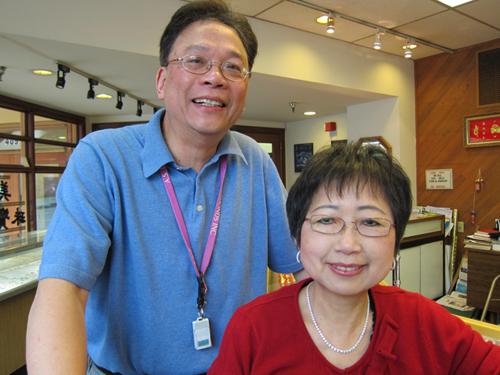By Tin Pak
NORTHWEST ASIAN WEEKLY
During a family gathering one evening, I brought into the conversation the recent closure of the Seattle Chinese Post (SCP) newspaper. For many of my younger relatives, this meant little to them. But in the eyes of my older aunts and uncles, I saw a moment of reminiscence and reflection on the paper’s 40 years of service to the community. For many who worked, lived, and socialized in the Chinatown-International District (CID) most of their lives, the SCP was more than a newspaper. It was a cultural institution that represented the entire community, led by people to whom they could relate. SCP provided crucial services that the many non-English speakers in the neighborhood relied on by providing news, and business opportunities while facilitating social gatherings.
After the discussion moved on, my eldest aunty, Sirdana came up to me and told me, “You know, uncle Francis came up with the Chinese name of the Seattle Chinese Post.” I was surprised when I heard this as I never considered how much my family contributed to the community in Chinatown. Through them, I learned more about the history of the neighborhood and how their own story intertwined with that of SCP and Assunta Ng in particular.
Sirdana is a stolid and direct woman whose gracefulness is a product of years of practicing Falun Gong. Francis is a tall man with a robust personality and a salesman’s sociability—always cracking jokes and lightening the mood. Together, my aunt and uncle are the bedrock of my family on my mother’s side. They were the first to migrate to the United States and my aunty, being the eldest sibling of 10, took care of my other relatives as they all eventually moved to Seattle. They are seen as the pioneers of our family, who set the foundation and allowed all who followed to enjoy the lives we have today in the U.S.
Their story began when they migrated to Seattle in the 1970s from Hong Kong, seeking the American Dream. They both were blue-collar workers who came to the U.S. with little in their pockets. That said, Sirdana was determined to own her own business instead of working for someone else like so many first-generation Asian immigrants. She told me passionately that “we had limited education when we came from Hong Kong. I could’ve worked for a restaurant but I wanted to have my own business.”
Their first business was the Rainbow Gift Shop, selling an assortment of trinkets and toys. At the time, Francis worked for Boeing so Sirdana was primarily in charge of operations at the store. It was at this time they met Assunta Ng who walked into the store one day. She introduced herself and told them that she was starting a newspaper in the neighborhood. Francis’s first impression of Assunta was a young “well-educated and very nice person.” Previously, she taught Francis’s sister and brother at a junior high school, who told them how kind and vibrant Assunta is.
The soon-to-be newspaper needed a name, so Assunta held a naming competition with a $50 prize. Potential names would be submitted and voted on to determine the winner. Francis came up with the name 西華報 and placed it in the competition. It roughly translates to Western Chinese Post. The use of the word ‘western’ in this case refers to western cultures, like Europe or the U.S., not the western territory of China. When I asked him how he came up with the name he simply stated, “It’s in America, it’s Chinese, and they are a post.” Because of this straightforward and clear name, it was selected.
In the early 1980s, Boeing began laying off large numbers of workers in Seattle, including Francis. The city’s economy took a huge hit, as Boeing was one of the largest employers. Tens of thousands of people left Seattle with billboards declaring, “Will the last person leaving Seattle turn off the lights?” lining the roads out of the city.
After this experience, Francis thought about moving to New York. He went on a job scouting trip to the Big Apple and while there, met up with a friend who owned a jewelry company. Ironically, instead of finding a new life there, Francis brought opportunities back to Seattle. The two made a deal, Francis would open up a branch of his friend’s business in Seattle’s CID. Later that year, in 1983, they opened a Le Hama Jewelry store at the corner of Jackson and Maynard Avenue, which is currently a post office. A little while later, his friend closed down the New York branch and sold the business to Francis.
Their jewelry store was unique in the sense that it did not pander to one particular clientele. Le Hama Jewelry store represented the diverse array of people that made up the CID. When describing what customers they had, Francis said “We carried all kinds of jewelry. For Chinese, Philippinos, Mexicans, Vietnamese, and others.”
They retired 10 years ago after 30 years of business. Sirdana proudly says to me, “We were one of the longest-running jewelry stores in Chinatown.” When asked what SCP meant to them as a neighborhood business, its significance in their lives was clear.
“We read it every week. They had local news that was important to us.”
As the story came to a close, I couldn’t help but wonder how others shaped Chinatown in their own unique way. Whether small or large, their contributions are imprinted on the soul of the community and with a little bit of digging can add to its growing history.





“Filipinos” was spelled incorrectly in your article.